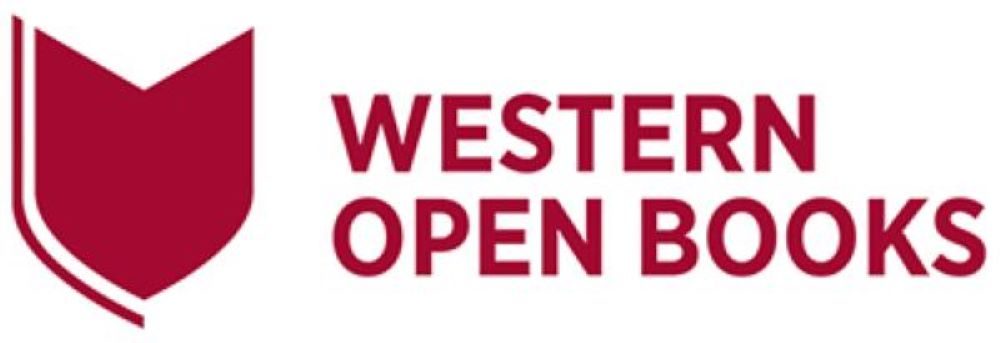10 Corporate sponsorship and memberships
Learning Objectives
- Understand corporate sponsorship and identify the ethical issues associated with it in the sports industry.
- Explore the different types of corporate sponsorship that exist
- Analyse and assess case studies of corporate sponsorships and evaluate their effectiveness in achieving the sponsor’s goals and the team’s objectives.
- Understand the importance of memberships in the sports industry and how they can benefit fans and sports teams.
Introduction
In the world of sports marketing, corporate sponsorship and memberships play a crucial role in achieving success. Corporate sponsorship and memberships are important as they allow organisations to establish connections with fans, enhance brand visibility, and generate revenue through sales. In this chapter, we will be discussing the various types of corporate partnerships, and memberships and the significance of these for you all studying sports marketing.
Corporate sponsorship
There are different types of sponsorship in sports, such as team sponsorship, athlete sponsorship, and event sponsorship. Team sponsorship involves providing financial aid and resources to a sports team in exchange for brand visibility. This type of sponsorship is usually observed in professional sports, where companies display their logo on jerseys, stadium signs, and other promotional materials.
The topic of sports sponsorship has become increasingly complex in recent years. While there used to be a clear consensus on the unacceptability of certain companies, like tobacco companies, sponsoring sports teams, the line has become blurrier. You may have heard about the complex relationship between sport and sponsors in the media. As societies value change, this is leading to a change to how sport teams want to align their brand with non-sports related business organisations.
For example, last year Australian energy and resources companies like Woodside Energy and Alinta were facing criticism for their sports sponsorships. Australian cricket player, Pat Cummins, decided not to feature in any promotional material for Alinta Energy during the final year of their sponsorship deal with Cricket Australia. Cummins is an advocate for climate action and has previously appeared in TV adverts for the energy company. He raised objections to Cricket Australia about the sponsorship deal, but the governing body says that this had no bearing on the forthcoming end to the partnership.
Questions to think about;
- How important is it for sports organisations to consider their athletes’ personal beliefs and values when selecting sponsorship partners?
- How might a sports organisation balance the financial benefits of a sponsorship deal with the potential reputational risks posed by a controversial sponsor?
Also, Netball Australia recently pulled out of a $15 million sponsorship deal with Hancock Prospecting, a mining company, after Indigenous player Donnell Wallam who plays on the national team, objected to wearing a uniform bearing the company logo, citing the company founder’s controversial views on Indigenous people. Her teammates also joined the boycott, leading to the cancellation of the sponsorship deal.
However, not everyone agreed with this position and many in the media argued that the financial sustainability of Netball was at risk due to this decision.
Researchers have also investigated and published research on sponsorship- for example in a study that explored sponsorships deals with regional Rugby Union teams in New Zealand interviewed members from six different rural teams to get their understanding of this dynamic. They explored their perspectives on using sponsors that could be seen to promote “unhealthy lifestyles”[1].
The article (one of this weeks additional readings) discusses the challenges that regional Rugby Union sport organisations (RSOs) in NZ face. It highlights the difficulty of balancing the benefits and risks of sponsorship deals with fast food and soft drink companies. Whilst these companies provide substantial funding that RSOs need to maintain and develop their programs, they are associated with unhealthy products that contradict the health and fitness goals of many sports organisations[2].

The authors in their interviews with sponsorship managers and CEOs gathered really interesting insights and recommendations on the issue. They found that some teams implemented policies to reduce the availability of unhealthy food and drinks at their events and venues, whilst others found alternative funding sources[3].
The article suggests that teams need to balance financial sustainability with promoting healthy lifestyles by considering the long-term impacts of sponsorships on their values and community health. To make informed sponsorship choices, the authors recommend that RSOs engage in transparent and collaborative decision-making processes with stakeholders[4].
Deloitte Report
The linked Deloitte report “Sponsoring sports in the digital age”[5] (your second additional reading for this week) examines how sports sponsorship is changing in the digital age and provides a use case from the 2019 FIFA Women’s World Cup to illustrate its key findings. The report highlights that digital technology has changed the way fans consume sports content and interact with their favourite teams and players. As a result, they suggest in this report that sports sponsorship needs to adapt to these changes and focus on engaging fans in new and innovative ways.
Not all sponsorships are the same
An article published by Prachar Communications described how sports sponsorship is an important aspect for athletes, sport teams and events to earn revenue through endorsements. They note in this article that there are different types of sports sponsorships such as title sponsor, official sponsor and technical sponsor. Flip the cards to learn more about the different types of sponsorships[6].
Memberships: The art of selling
Understanding the various types of sports memberships available is crucial for sports teams to build a successful membership program that resonates with their target market. These memberships come in different shapes and sizes, each offering unique benefits and experiences to fans.
Typically, membership packages are structured in a tiered system, which means that each package offers different benefits and rewards based on the fan’s or organisation’s financial contribution to purchase membership tickets. By comparing different sports teams’ membership packages, we can gain insight into how they are positioning their memberships to cater to different segments of their fan base.
So, before our class discussion, it is recommended to have a look at the Western Sydney Wanderers’ and Newcastle Knights membership packages to understand how they are structured and the benefits they offer to their members.
A-League Women – Western Sydney Wanderers FC
A-League Men – Western Sydney Wanderers FC
NRLW – Newcastle Knights
NRL – Newcastle Knights
Benefits of membership for a fan
Becoming a member of a professional sports team offers a wide range of benefits that extend beyond the simple pleasure of watching your favourite team or player play. While discounts on merchandise are definitely perks of membership, the community and networking opportunities that come with being a member are often overlooked.
Being part of a sports team community can offer you the chance to connect with like-minded individuals who share your passion for the sport (so a social good!), whilst also giving you access to unique events and opportunities that are not available to the general public.
Often professional sports teams often offer their members exclusive access to events such as player meet and greets, behind-the-scenes tours, and even VIP seating at games. These events not only offer you the opportunity to get up close and personal with your favourite player/s, but they also provide a chance to network with other fans who share your enthusiasm for the sport.
Networking with fellow members can lead to the development of new friendships, business partnerships, and even career opportunities.
Check out this 2020 fan day vlog created by a Parramatta Eels fan[7].
Moreover, sports teams often engage in community outreach programs and initiatives that provide their members with opportunities to give back to their communities. Members may be able to participate in charity events, volunteer programs, and community service projects that allow them to make a positive impact on the lives of others. Being part of a sports team community can give members a sense of pride and fulfilment that extends far beyond the sport itself.
For example, Souths Cares is the official charity arm of the South Sydney Rabbitohs NRL team, focused on making a positive difference in the community. Fans of the team have the opportunity to support Souths Cares by donating to the charity or by participating in various fundraising events held throughout the year.
Through their work, Souths Cares aims to empower and inspire individuals, particularly in Indigenous communities, to make positive changes in their lives and become active members of their community. Watch the following video that explores their 2022 year in review[8].
In summary, becoming a member of a professional sports team can offer benefits that go far beyond simply watching the team play. Membership can provide access to exclusive events and networking opportunities, as well as opportunities to give back to the community and make a positive impact on the lives of others. We will explore this in more detail next week (Week 11- Community and Stakeholders).
Let’s do a knowledge check of this week content.
Media Attributions
- Batty, RJ & Gee, S 2019, 'Fast food, fizz, and funding: Balancing the scales of regional sport organisation sponsorship', Sport Management Review, vol. 22, no. 1, pp. 167-79. ↵
- Batty, RJ & Gee, S 2019, 'Fast food, fizz, and funding: Balancing the scales of regional sport organisation sponsorship', Sport Management Review, vol. 22, no. 1, pp. 167-79. ↵
- Batty, RJ & Gee, S 2019, 'Fast food, fizz, and funding: Balancing the scales of regional sport organisation sponsorship', Sport Management Review, vol. 22, no. 1, pp. 167-79. ↵
- Batty, RJ & Gee, S 2019, 'Fast food, fizz, and funding: Balancing the scales of regional sport organisation sponsorship', Sport Management Review, vol. 22, no. 1, pp. 167-79. ↵
- Deloitte 2020, Sponsoring sports in the digital age, <https://www2.deloitte.com/content/dam/Deloitte/lu/Documents/sports-consulting/lu-sponsoring-sports-today-digital-age.pdf> ↵
- Prachar Communications 2021, Sport Sponsorship Marketing: What are the Different Types? <https://prachar.in/sports-sponsorship-marketing-what-are-the-different-types/> ↵
- ENTERTAIN HOUSE 2020, Parramatta Eels fan day vlog 2020, 22 February, online video, <https://www.youtube.com/watch?v=zpqR5realZQ>. ↵
- South Sydney Rabbitohs 2022, Souths Cares - year in review, 5 September, online video, <https://www.youtube.com/watch?v=_4yYJdLVtKY>. ↵

